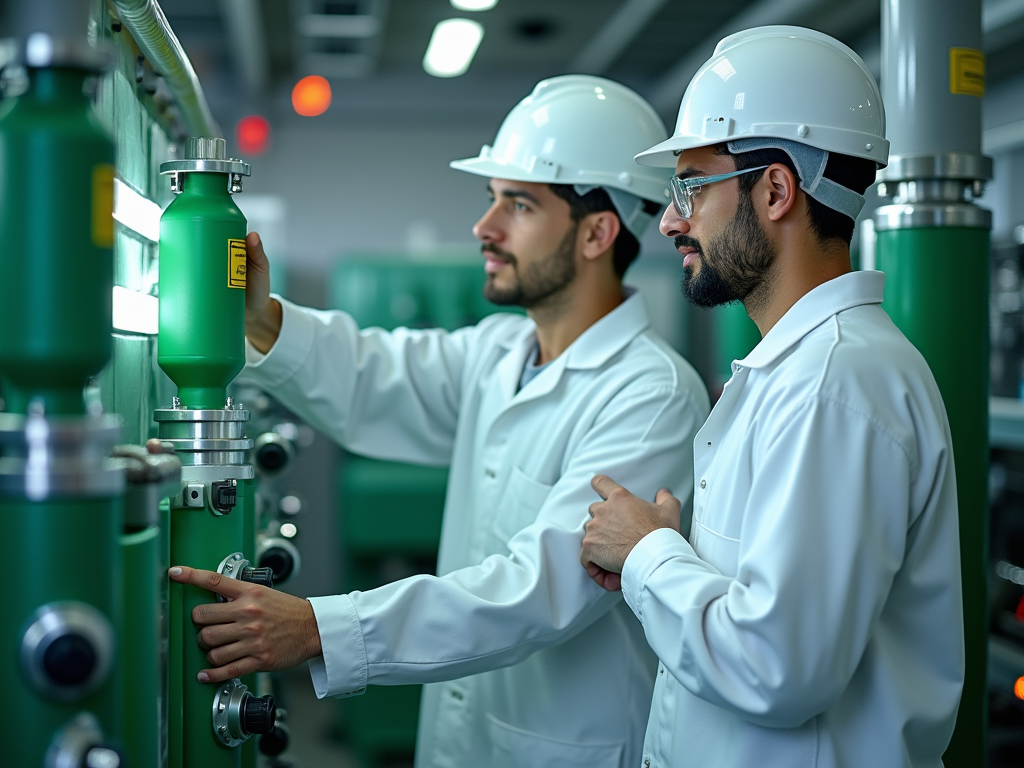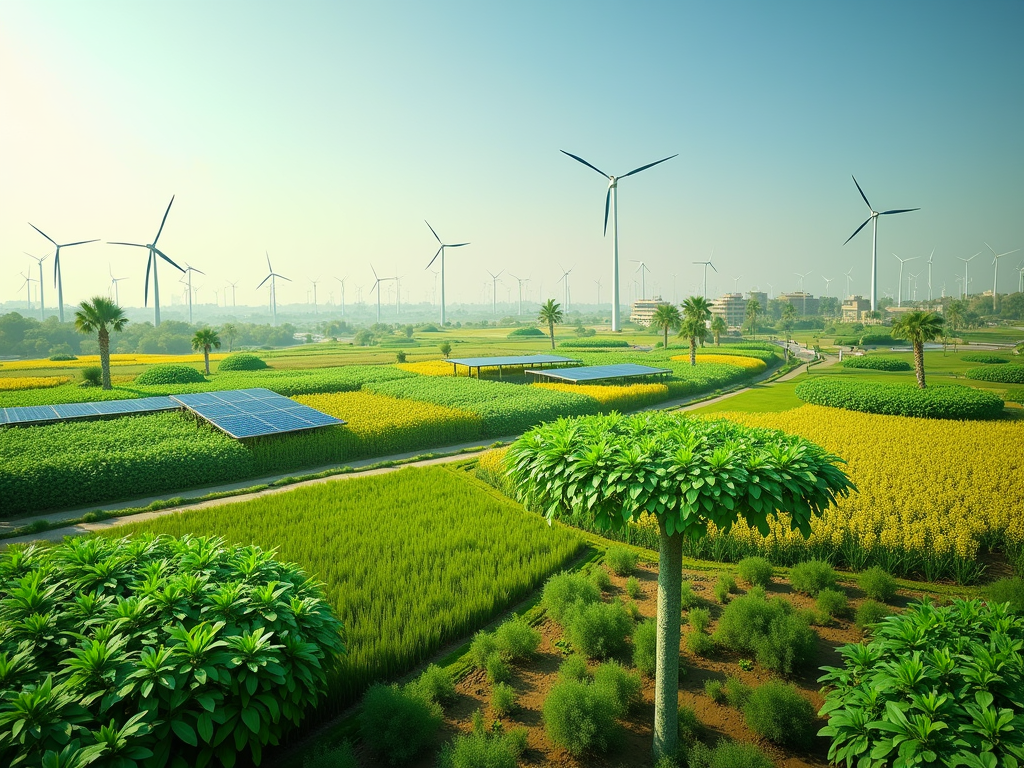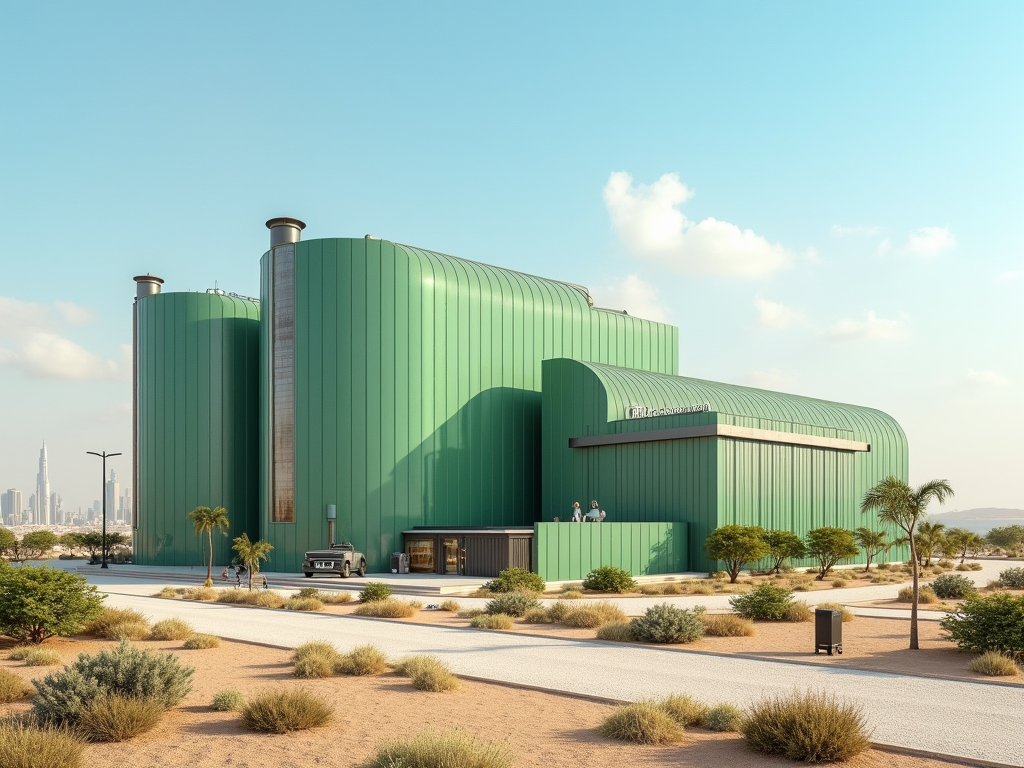Dubai is rapidly emerging as a global hub for innovative bioenergy projects, leveraging its technological advancements and commitment to sustainability. The city’s strategic initiatives in bioenergy not only address pressing environmental challenges but also contribute to the economy and energy diversification. With a focus on renewable energy sources, Dubai’s bioenergy projects promise a cleaner and more sustainable future. This article delves into the potential of these projects, highlighting their benefits, current advancements, and future outlook.
The Importance of Bioenergy in Dubai

Bioenergy plays a crucial role in enhancing Dubai’s energy landscape, significantly contributing to the city’s renewable energy goals. As the world grapples with climate change, cities like Dubai are increasingly investing in sustainable solutions. The importance of bioenergy in Dubai can be summarized in several key areas:
- Waste Management: Bioenergy projects transform organic waste into renewable energy, minimizing landfill use.
- Energy Security: Diversifying energy sources reduces dependence on fossil fuels and enhances energy security.
- Job Creation: Growing the bioenergy sector leads to new employment opportunities in green technologies.
- Economic Growth: Bioenergy projects can stimulate economic development through new technologies and businesses.
- Environmental Impact: These projects reduce greenhouse gas emissions and are pivotal for sustainable urban development.
Current Bioenergy Initiatives in Dubai

Dubai has undertaken several significant bioenergy initiatives aimed at utilizing waste to generate clean energy. Notable projects include:
- Dubai Waste-to-Energy Plant: This plant converts up to 1.9 million tons of waste annually into renewable energy, significantly reducing landfill waste.
- Green Hydrogen Strategy: Dubai aims to produce green hydrogen from bioenergy sources to diversify its energy portfolio further.
- Al Marmoom Biopark: This project integrates bioenergy generation with biodiversity conservation, showcasing sustainable land use.
- Sustainable Agriculture: Initiatives promoting organic farming practices leverage bio-waste for energy and improve agricultural yields.
The advancement of technologies plays a pivotal role in the success of bioenergy projects in Dubai. Several innovative technologies being utilized include:
- Anaerobic Digestion: This process breaks down organic matter without oxygen, producing biogas that can be converted into electricity.
- Biodiesel Production: Utilizing waste oils, Dubai is developing methods to produce biodiesel as a renewable fuel source.
- Pyrolysis: This thermochemical process converts organic materials into biochar, bio-oil, and syngas, contributing to energy generation.
- Gasification: This technology converts carbonaceous materials into gaseous fuels, aiding in efficient energy production.
Future Outlook and Challenges
As Dubai continues to innovate in the bioenergy sector, several challenges and opportunities lie ahead. The future outlook is optimistic but requires overcoming specific barriers:
- Funding and Investment: Securing sufficient financing is essential for developing large-scale bioenergy projects.
- Regulatory Frameworks: Establishing supportive regulations can enhance project feasibility and encourage private sector participation.
- Public Awareness: Increasing public knowledge about the benefits of bioenergy can foster community support for these initiatives.
Addressing these challenges can unlock significant potential in Dubai’s bioenergy projects, leading to sustainable growth in the energy sector.
Conclusion
Dubai’s commitment to renewable energy is epitomized in its ambitious bioenergy projects, which hold immense potential for sustainable development. By advancing innovative technologies and prioritizing waste-to-energy solutions, Dubai stands at the forefront of the global bioenergy movement. As the city navigates challenges related to financing, regulation, and public engagement, the overall outlook remains promising. These projects not only offer environmental benefits but also foster economic growth and job creation, aligning with Dubai’s vision for a sustainable future.
Frequently Asked Questions
1. What is bioenergy?
Bioenergy is renewable energy derived from organic materials, including plant and animal waste, which can be converted into electricity, heat, or fuels.
2. How does Dubai manage its organic waste?
Dubai manages organic waste through various bioenergy projects, including waste-to-energy plants that convert waste into renewable energy, thus reducing landfill use.
3. What are the advantages of bioenergy?
Advantages include renewable energy production, reduced greenhouse gas emissions, improved waste management, job creation, and economic growth.
4. Are there any challenges facing bioenergy projects in Dubai?
Challenges include securing funding, establishing supportive regulatory frameworks, and increasing public awareness about bioenergy initiatives.
5. What is the future of bioenergy in Dubai?
The future looks promising due to ongoing investments and technological advancements, which are expected to enhance the city’s renewable energy goals significantly.
